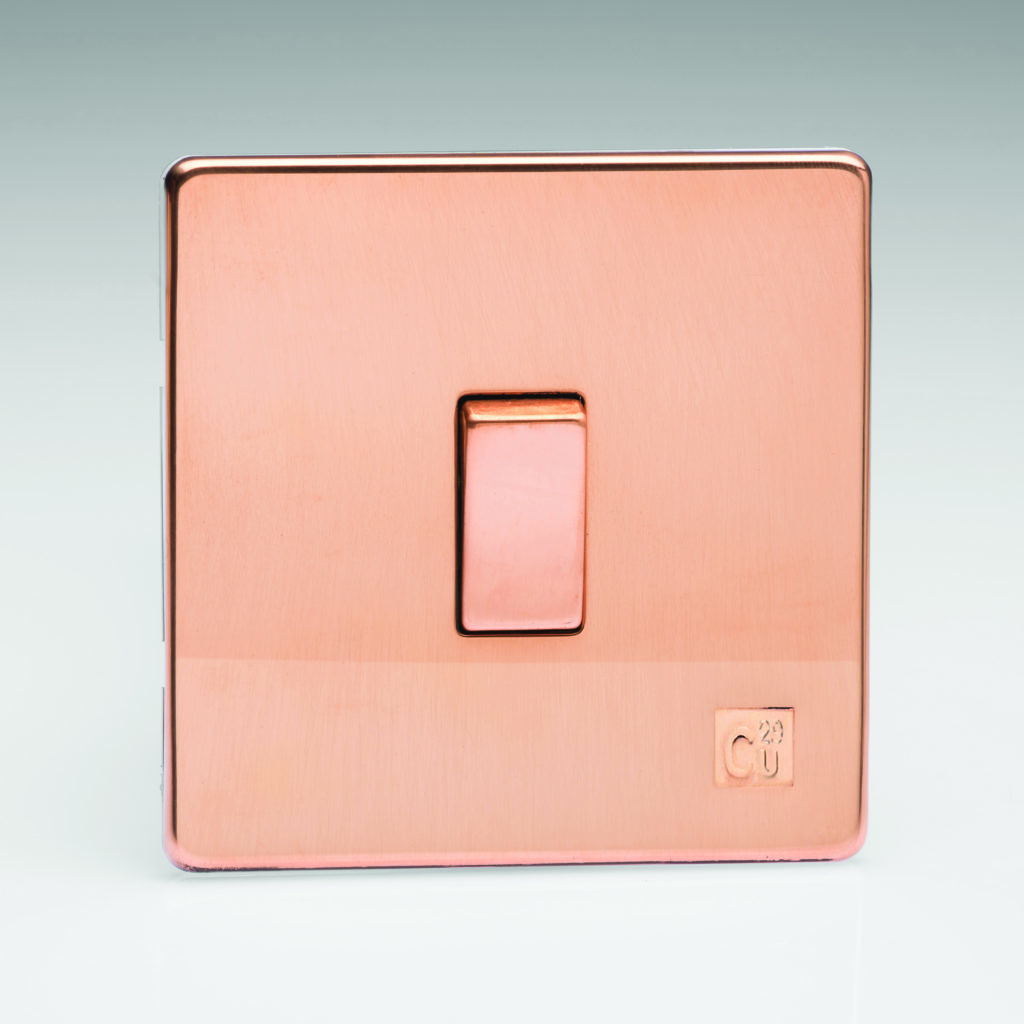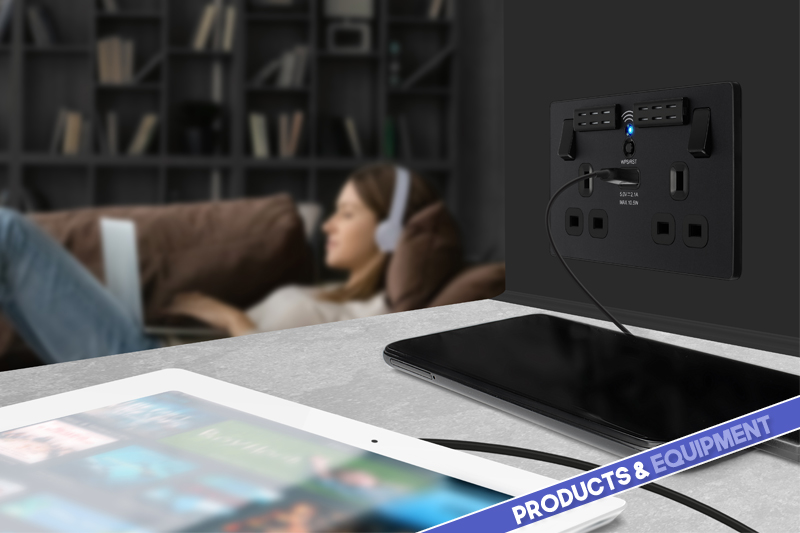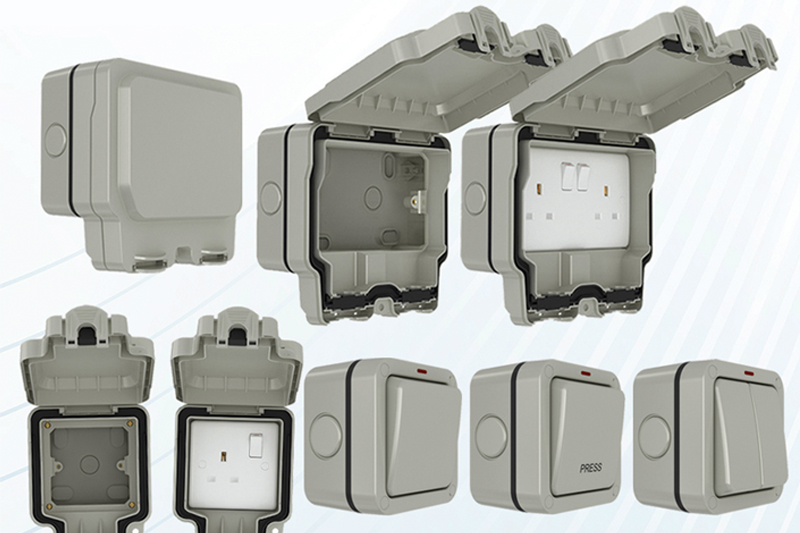Andrew Wilson at Varilight highlights the virtues of Antimicrobial Copper Switches and Sockets in helping to stop the spread of viruses.
With the global Covid-19 pandemic continuing to profoundly affect our lives, we are all learning to adapt to the “new normal”. In addition to requiring us to find new ways to coexist safely, the pandemic highlights the need for changes in our approach to building infrastructure and it is becoming clear that even the smaller details like which switches and sockets we use can make a really big difference.
Alongside the global effort to develop vaccines and treatments for Covid-19, research into the transmission pathways which drive the reproductive value, or “R-rate”, of the virus has also stepped up. Airborne droplets and aerosol mists appear to be common sources of transmission but we are also advised to take steps to protect ourselves in case we come into contact with contaminated surfaces. Messages urging regular and thorough hand washing, as well as rigorous cleaning, are being widely promoted.
Nevertheless, even when strict hygiene measures are adopted, surfaces can all-to-easily become contaminated again when next exposed to virus particles. Arguably a more comprehensive solution to combating contact transmission of viruses would be to re-evaluate the materials we select for regularly touched surfaces in favour of those with inherent antimicrobial properties.
Antimicrobial range
Certain types of plastic can be engineered to act against microbes, often by applying antimicrobial coatings or additives to the material. But better still are metals like copper which are naturally antiviral, antibacterial and antifungal and are sufficiently versatile to be used to manufacture many frequently touched items like door handles, finger plates, counter tops, as well as switches and sockets.
At Varilight we are highlighting the availability our “Cu29” Tarnishing Antimicrobial Copper range of switches and sockets and taking every opportunity to explain the effectiveness of copper in protecting against viruses, bacteria and other microbes. Research from the University of Southampton has found that a coronavirus (in this case HuCoV-229E) died on copper surfaces within minutes compared to many days on some other surfaces*.

Previously, manufacturers have targeted antimicrobial ranges at health and care environments in particular but the benefits of installing copper products more widely have come into sharp focus; antimicrobial surfaces can contribute to reducing transmission in all shared environments and public spaces. With such clear evidence of its efficacy, wholesalers can be confident in promoting the use of copper antimicrobial wiring accessories for projects where otherwise an opportunity might be missed to reduce transmission of viruses and other pathogens.
Copper safety
Normal tarnishing or wear of copper surfaces will not impair the antiviral effectiveness of the product so, importantly, copper keeps working 24/7 to kill virus particles and reduce infection in between regular cleaning and sanitisation procedures. Varilight’s Cu29 range features faceplates, rockers and knobs made from solid copper with no special coatings so this essential effect won’t reduce overtime. The screwless faceplates clip on, removing the need for exposed fixings or screwheads where germs might accumulate.
We can all do our bit to help stop the spread of the virus and wholesalers can play their part too by advertising the availability of antimicrobial wiring accessories to their customers so that installers can help their clients make informed choices when selecting switches and sockets for their homes and businesses. With Varilight manufacturing in the UK and holding stock locally, wholesalers can expect a fast turnaround on orders which gives electricians the opportunity to offer antimicrobial copper as an option for installations approaching final fix as well as for future projects.





